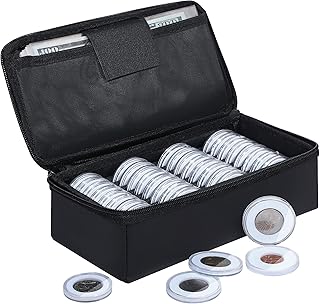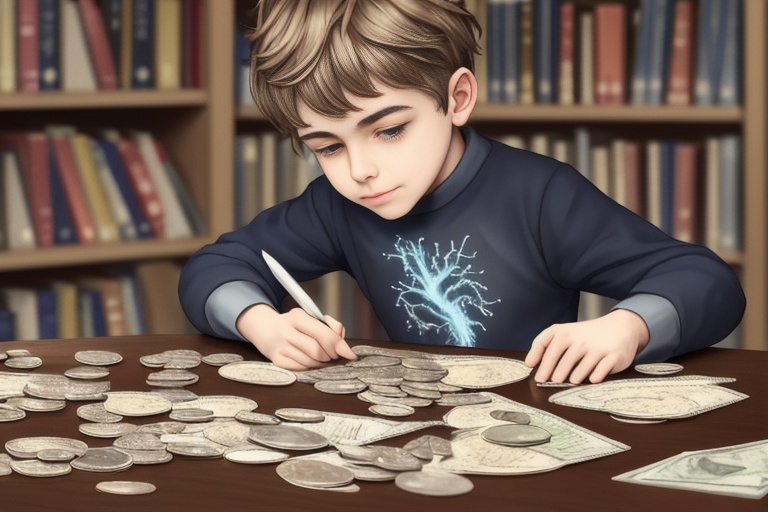Navigating the Sale of an Estate Coin Collection
Navigating the Sale of an Estate Coin Collection
Assessing and Organizing the Collection
When you inherit the responsibility of liquidating an estate coin collection, the first step is to get a sense of what you're dealing with. Many Depression Era coin collections hold valuable U.S. Silver coins, which have appreciated due to their precious metal content. Additionally, rare and numismatic coins may have been gathered during this period. Bullion coins made of gold, silver, and platinum could also be part of the mix, valued mainly for their metal content rather than collectible appeal.
It is paramount to first determine if the collection was the product of a committed hobbyist or if the coins were accumulated as a merely incidental collection. Collectors often take great care to separate valuable coins, keeping them in specialized albums or individual holders. On the other hand, coins bought primarily for their silver, gold, or platinum content tend to be stored based on their bullion value.
Avoid the common impulse of cleaning coins to make them look more appealing. Cleaning can damage their surface and often significantly reduces their value. Instead, leave the coins as-is, since condition and originality are key factors in valuation.
Divide the coins by type and denomination, supply them in groups, and take note of any that are sealed by grading services. This separation will ease the valuation process and help in identifying the most appropriate avenue for liquidation.
Understanding Numismatics and Coin Values
As an executor, you're not expected to become an expert numismatist overnight. However, a basic grasp of what contributes to a coin's value can give you an advantage in the selling process. The rarity, condition, year of minting, and mint mark all play significant roles in determining a coin's worth.
Equip yourself with respected pricing guides or consult online resources to establish a ballpark figure for the coins. Although it might be daunting, the knowledge acquired will be invaluable when it comes time to discuss the collection with potential buyers.
Selecting a Reputable Coin Dealer
The significance of partnering with a trustworthy coin dealer cannot be overstated. Seek out dealers with longstanding industry reputations, memberships in professional bodies such as the American Numismatic Association, and positive customer reviews.
It's advisable to approach several dealers to get comparative quotes for the collection. A reputable dealer will quote transparent pricing and offer guidance through the selling process, which includes answering all of your questions thoroughly.
Documenting Appraisals
Having your collection appraised and well-documented will substantiate its value to potential buyers. Depending on volume and projected worth, you can either employ the services of a professional appraiser or work with a chosen dealer to document the collection. These records should include detailed descriptions of individual coins, their condition, and any pertinent grading information.
Choosing a Selling Method
Multiple options are available when it comes to selling the coin collection. You may decide to consign the lot to an auction house, sell directly to a dealer, or take advantage of online platforms and marketplaces. Each choice has its advantages and potential drawbacks. Consider fees, timeframes, and market interest for your specific types of coins when selecting the best route for the sale.
Final Steps in the Sale
Once you're ready to sell and have received offers, it is vital to diligently review all terms of the sale. Ensure that the payment methods offered are secure and that they align with your expectations. Keep copies of all transactional documentation for your records post-sale.
For those inheriting Depression-era coin collections, the prospect of liquidation can be daunting. Yet, with a measured approach to organization, education, and vendor selection, even first-timers can manage an effective and profitable sale.
Up Next: Valuating and Selling Specific Coins
In the forthcoming Part 2, we will delve deeper into assessing individual types of coins. This guide will help you identify the potential hidden gems in an estate collection and provide strategic insight into getting the most value from the sale whether dealing with silver quarters, rare pennies, commemorative pieces, or bullion. Stay tuned as we explore these facets in more detail, continuing to aid executors on their journey to successfully navigating their inherited numismatic responsibilities.
Information for this article was gathered from the following source.




